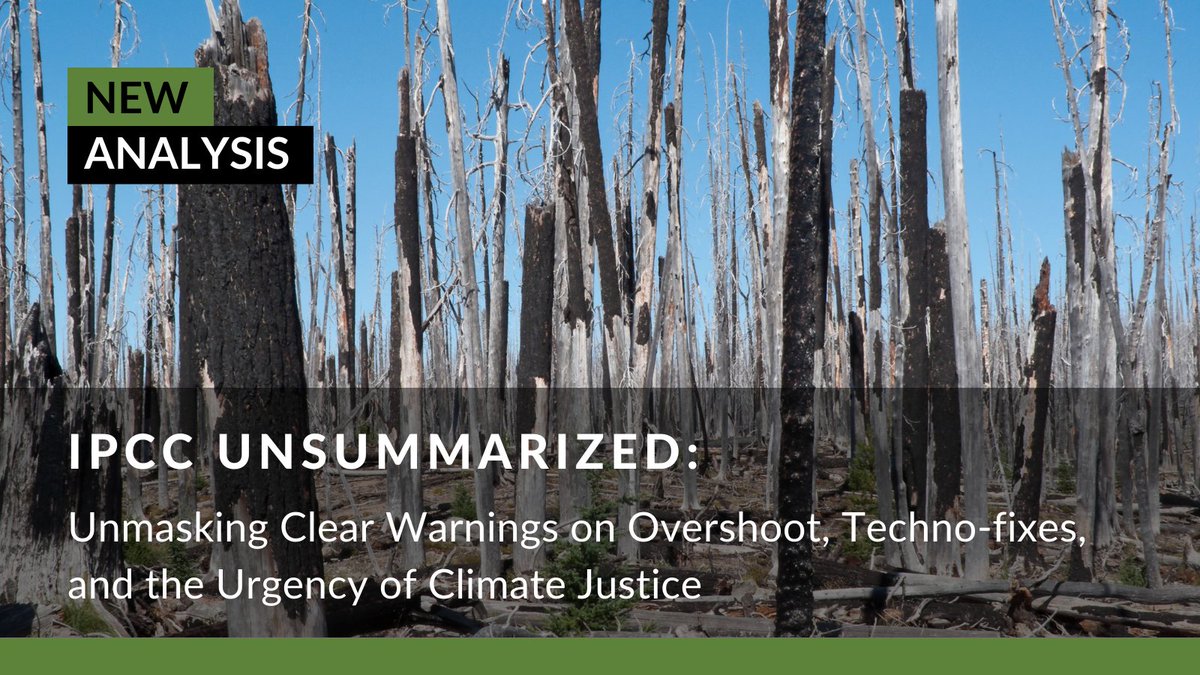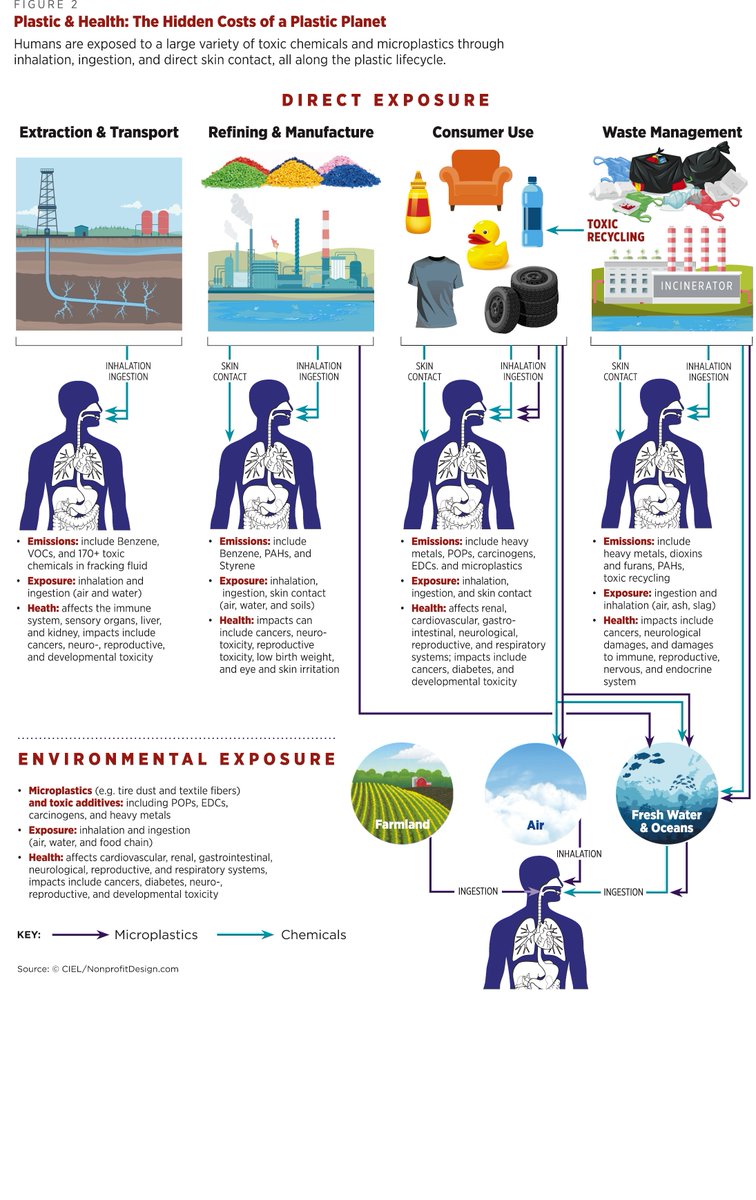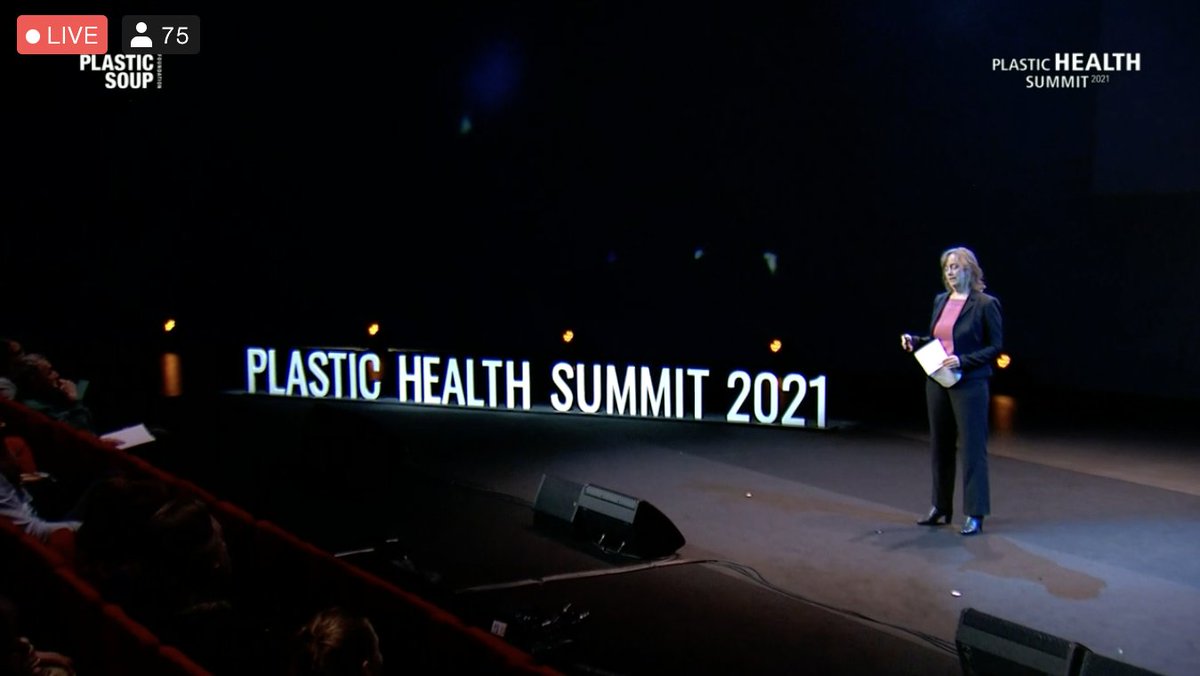
‼️ NEW ‼️
Analysis from @ciel_tweets & @boell_stiftung: "#IPCC Unsummarized: Unmasking Clear Warnings on Overshoot, Techno-fixes, and the Urgency of Climate Justice" ➡️ ciel.org/reports/ipcc-w…
Key takeaways in this thread 🧵👇
Analysis from @ciel_tweets & @boell_stiftung: "#IPCC Unsummarized: Unmasking Clear Warnings on Overshoot, Techno-fixes, and the Urgency of Climate Justice" ➡️ ciel.org/reports/ipcc-w…
Key takeaways in this thread 🧵👇

Early this month, the @IPCC_CH published the Contributions of Working Group III to the Sixth Assessment Report.
The subject? Mitigation of #ClimateChange.
#IPCC #ClimateReport #ActOnClimate
The subject? Mitigation of #ClimateChange.
#IPCC #ClimateReport #ActOnClimate

Like previous #IPCC Reports, this one demonstrates:
🚩#ClimateChange is a present emergency
🚩Each increment of warming accelerates the scale & severity of the crisis
🚩Phasing out ALL #FossilFuels is the quickest & most effective way to end #ClimateChaos.
ciel.org/news/political…
🚩#ClimateChange is a present emergency
🚩Each increment of warming accelerates the scale & severity of the crisis
🚩Phasing out ALL #FossilFuels is the quickest & most effective way to end #ClimateChaos.
ciel.org/news/political…
The report also makes it clear that overreliance on unproven techno-fixes like #CarbonCapture & storage & technological carbon dioxide removal is dangerous, with human & environmental consequences.
More about why #CCS is a false #ClimateSolution here👇
More about why #CCS is a false #ClimateSolution here👇
https://twitter.com/ciel_tweets/status/1417109294982500354
Despite that, the @IPCC_CH #WG3 report buries 🕳️ and downplays 🫥 these exact warnings, particularly in the Summary for Policymakers, in an array of models and pathways that rely on these same dangerous technologies.
Shouldn’t a #ClimateReport that focuses on measures we must take to mitigate the #ClimateCrisis focus on solutions we know will work in the face of an accelerating emergency?
With @boell_stiftung, we draw from recent #IPCC reports & show that the science is clear:
🔥 There is an urgent need to transition from #FossilFuels,
🔥 It is feasible AND necessary to stay below 1.5C, and
🔥 There are risks associated with both overshoot & techno-fixes.
🔥 There is an urgent need to transition from #FossilFuels,
🔥 It is feasible AND necessary to stay below 1.5C, and
🔥 There are risks associated with both overshoot & techno-fixes.

We looked at the core assumptions & biases built into models & mitigation pathways AND at how political choices made in distilling the full #ClimateReport into a brief. for policymakers skew our understanding of the science, the options & the risks that accompany climate choices.
#ClimateAction involves both urgency & agency:
🔴 URGENCY in that the time is nearly up to take transformative action, and
🔴 AGENCY in that it is still possible to avert the worst consequences of a warming world if we act now.
Read more 👇
ciel.org/reports/ipcc-w…
🔴 URGENCY in that the time is nearly up to take transformative action, and
🔴 AGENCY in that it is still possible to avert the worst consequences of a warming world if we act now.
Read more 👇
ciel.org/reports/ipcc-w…
• • •
Missing some Tweet in this thread? You can try to
force a refresh















